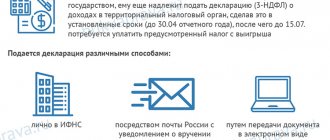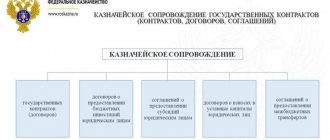Law on major repairs of new buildings
The rules for carrying out major repairs in apartment buildings determine:
- housing code of the Russian Federation;
- Federal Law No. 271-FZ “On Amendments to the Housing Code of the Russian Federation and Certain Legislative Acts of the Russian Federation.”
You need to rely specifically on the Housing Code, Section IX. And Federal Law No. 271 fixes changes in it.
There is no separate law or code articles on the renovation of new buildings. Because the start time for collecting contributions to the Capital Repair Fund (hereinafter referred to as the CRF) depends on the timing of the inclusion of the house itself in the regional program and on the general technical condition of the housing.
But more about this below.
Which houses are considered new buildings
Typically, new buildings are considered to be houses built 2-3 years ago. Maximum – 5 years.
But a more accurate definition is purchasing them from the developer: be it a construction company or an individual with whom an agreement has been concluded on the assignment of the right to shared construction.
If ownership of the apartment has already been registered, then it is considered secondary. Let them live there for one day.
Sometimes houses after reconstruction can be considered new buildings. But this is possible if after it the number of apartments in the building or the entry about it in the Unified State Register has changed, or a new cadastral number has been assigned.
However, this situation is rather an exception to the rule. Typically a new home is a home from a developer.
Exceptions to the General Rules
Where did the information come from about the exemption from paying contributions for major repairs for owners of living space in new buildings for 5 years from the date of delivery of the house? Some confusion was caused by amendments to the Housing Code adopted in 2021. In accordance with them, a house put into operation after June 1, 2016 is recognized as a new building. This version of the bill says nothing about the abolition of mandatory payments for major repairs of new buildings.
A period of 5 years is the minimum period covered by the developer’s guarantee to eliminate problems and malfunctions in the property he has delivered. During this period, the construction company is obliged to solve all problems that arise during the operation of the house at its own expense. On this basis, owners of apartments in new buildings believe that payment for major repairs of the building is not obligatory for them. However, this is not the case. The guarantee provided by the developer is in no way related to the fee for major repairs of a new building.
The system for adding a new building to the queue for major repairs is as follows:
- After the building is put into operation, the municipality takes it on its balance sheet and registers it with the cadastral authorities.
- According to the Housing Code, all residential buildings must be included in the regional capital repair program (regardless of when its deadline comes). Every year, the regional government adds new objects to this list, indicating the period of work, determined on the basis of average depreciation rates of the housing stock.
- After a new building is included in the regional program, homeowners are required to pay a monthly fee in the established amount to the FKR of apartment buildings.
According to the Housing Code, this obligation begins to apply after 8 months from the date the program enters into force. However, in practice, the decision on the accrual of payments to the Capital Repair Fund is entirely at the discretion of the regional authorities. Some constituent entities of the Russian Federation provide for a deferment in making payments, provided to owners of apartments in new buildings. Its duration can vary from several months to 5 years, depending on the regulations of a particular region.
Major repairs of new apartment buildings up to 5 years
There is such a thing as wear and tear. It would be a mistake to think that if the house is new, then it is too early to think about major repairs.
For example, the service life of an elevator is 25 years. Facade cladding, hot and cold water supply systems - already 10-15. But a seam roof and a soft roof with a bitumen layer will have to be replaced after just 5 years.
That is, after 15-20 years, most structures will become unusable. And to replace them, a significant amount will be needed. Therefore, the sooner the owners start saving money, the easier and better the repairs will be.
If tenants still do not want to pay the fees, then they violate the obligations imposed by Article 168 of the Housing Code.
Do I need to pay for major repairs in a new house, fees?
The first thing owners of apartments in a new building need to do is choose the form of management of the apartment building - a management company or a homeowners' association.
Next, they determine the method of forming the Fund. There are 3 options:
- Shared account with a regional operator.
- A special account with a regional operator.
- Special account for HOAs, management companies, housing cooperatives.
Each method has its own advantages and disadvantages. Therefore, this issue must be considered in detail. For example, if the condition of the house is close to emergency, then it is better to choose a general account with a regional operator. Because then the money is allocated to repair houses that need it first.
The special account allows for greater flexibility of funds. Residents can save money and manage it. They have the right, having saved a sufficient amount, for example, to use it to replace the heating system. Next time, cover the roof. But the owners also have a great responsibility.
After all these organizational measures, the house will be included in the regional capital repair program. The program is updated annually. According to Article 168 of the Housing Code, it does not include houses with more than 70% deterioration or if the amount of major repairs exceeds the limit in the region. Such houses are recognized as unsafe, or the issue of reconstruction is being considered.
But if the house has not yet been included in the capital repair program, and payment is already being collected, this is illegal. You need to complain to the local administration, police, prosecutor's office.
For owners of apartments in new buildings, Article 170 of the Housing Code provides for deferred payments. That is, the house is included in the program, and contributions begin to be paid after some time. Maximum – 5 years.
Each region has its own deferment period . The hardest thing is for Muscovites - there is no deferment for them, just like for St. Petersburg residents. Both in Moscow and St. Petersburg, fees for major repairs in new buildings are charged completely legally, no deferment is provided. In the Tyumen region - 4 months. And in Samara and Novosibirsk the maximum period is 5 years.
How old does a house have to be to pay for major repairs?
As we can see from the text above, a lot depends on the region of your residence. But there are also “loopholes” that will help you defend your rights even in the capital.
What to do if in the region the deferment is accepted, for example, 1 year, but the house is under warranty from the developer for 5 years. After all, if a third party intervenes in the building structures or engineering systems of the building, the warranty will be void.
Then the owners have the right to write an application for deferment. All owners of apartment buildings must vote for this at a general meeting of residents.
The application is written to the regional administration. It provides arguments why owners are asking to defer contributions for major repairs.
The housing commission evaluates the condition of the house and makes a decision. If the answer is no, then payment begins.
Please note that deferment of payments for major repairs is only possible if the house was put into operation no more than 5 years ago.
Which houses are recognized as new buildings?
Let's figure out which houses are new buildings? Do I need to pay for major repairs if the house is new, up to 5 years?
It doesn’t matter what the house looks like, what its communications are, or what its infrastructure is. The most important thing is the deadline .
In accordance with the amendments made to the Housing Code in 2015, a new building is a building that was commissioned after July 1, 2021.
Today, housing legislation is not very streamlined and is undergoing a stage of constant change.
Therefore, a situation very often occurs when in some newly completed houses, payments for major repairs constantly arrive , and in others they do not arrive at all.
Residents, unable and unwilling to use the legislation, either regularly pay contributions for major repairs in new buildings, or are unreasonably indignant.
But are the actions of local governments legal in charging fees for major repairs of a new building ? When it comes to contributions for major repairs, it is important to take into account many nuances. Find out who can choose not to make transfers, how the amount is calculated, what alternative is to a regional operator’s account, where and how payment is made, here.
From what time does payment for major repairs in new houses begin?
Sometimes a situation arises when the house is completed before July 1, 2021. But in the next five years, the construction is under warranty from the developer , which means that if any breakdowns of common property occur, the developer will eliminate the faults without the help of management organizations and, even more so, a capital repair fund.
It is precisely because of situations like this that citizens refuse to pay for major repairs because they are unnecessary.
If the house was commissioned before July 1, 2021 and does not have a guarantee , then the residents need to hold a meeting.
So, at this meeting, issues related to the fund for collecting contributions for major repairs, as well as the need for future work, should be resolved.
If residents do not want to spend money on major repairs and believe that their house is in excellent condition, then they are contradicting Article 168 of the Housing Code, which states the obligation of all citizens to make these payments.
Do I have to pay for major repairs in a new building? When living in a new home, you need to take care in choosing a management organization . It can have very different organizational and legal forms - a homeowners' association, a management company, and so on.
This body is necessary to be responsible for the maintenance of an apartment building, carry out seasonal work, and also draw up a plan for future major repairs.
Only having a selected organization as a manager, as well as a capital repair fund, registered in a commercial or non-profit structure, can we talk about putting the house on the queue for major repairs.
In accordance with the law, this can be done after 3 to 5 years from the date of delivery of the house. That is, if the house was commissioned on July 1, 2016 and is subject to the law on exemption from payments for major repairs, then you will be able to carry out repair work only in 2019.
If you are wondering: should we pay for major repairs if our house is not 5 years old, keep in mind that each region and entity has its own regional legislation, according to which it is determined what period after completion is free from the obligation to make contributions for major repairs.
For example, in the Saratov region they are exempt from such payments for a period of 3 and a half years.
Upon expiration of this period, residents at a meeting prepare for upcoming payments and decide in which structure to form the fund.
How to pay for major repairs in a new house
No less than 3 months before the start of payments, the owners at a general meeting decide on the method of forming the FCR (options were described above). Other organizational issues are also addressed:
- amount of contributions;
- fund size;
- list of priority and secondary works.
Subjects of the Russian Federation set their own minimum tariffs . Then the total number of apartment buildings, their technical condition, the relationship with utility bills, and the degree of state support are taken into account.
In Moscow in 2021, a tariff of 18.19 rubles per square meter has been established. In Yekaterinburg – 9.36 rubles. And in the Republic of Mari El – only 5.20.
But owners can increase the monthly payment, for example, when saving for a certain type of work.
Separate receipt
The contribution for major repairs is included in the general receipt for utilities. The form of the payment document was approved by Order of the Ministry of Construction No. 43 dated January 26, 2021.
However, the same ministry, in a letter dated July 7, 2014 “On certain issues arising in connection with the implementation of the legislation of the Russian Federation on the organization of major repairs...” officially secured the right of owners to receive a special receipt specifically for major repairs. This must be voted on by the owners at a general meeting.
A separate receipt states:
- area of the home;
- contribution amount per square meter and for the entire apartment;
- benefits, penalties, debts;
- total amount.
By the way, starting from 2021 in Moscow and the Moscow region, all charges for major repairs are made only by MosOblEIRTS. The contracts with other agents of the capital repair fund have been terminated. And if the management company does not have an agreement with this organization, then they receive a separate receipt for major repairs every 3 months.
Do management companies always lie?
Property management companies typically collect the funds needed to keep the home in excellent condition. If a violation of deadlines is discovered, one should not think that officials deliberately resorted to deception.
There is a principle that allows you to collect a certain “control pillow”. It represents a certain amount for urgent needs, so the actions are legal.
Gradually, deception becomes a thing of the past, as entire companies are destroyed because of it. When such steps are discovered, an audit is usually carried out, although even this usually turns up nothing.
Because of this, actions turn out to be completely meaningless, which suggests the impossibility of confirming fraudulent actions.
Payments for major repairs in new buildings remain an unpleasant issue. The very first payments frighten a person.
He will have to clarify many details, and then hold a public meeting. After this, every provision of the legislation will be taken into account, so the owners of apartments in the building will understand the intricacies so as not to make mistakes.
Explanation of the tariff for “maintenance and current repairs of common property”
Receipts for housing and communal services indicate fees not only for major repairs, but also for current ones. What is the breakdown of this payment?
It is necessary to distinguish between 2 types of repairs - major and current.
Current repairs and maintenance of the common property of the apartment building include:
- preparation for the heating season;
- minor and cosmetic repairs (such as painting the walls of the entrance);
- preventive measures to support the performance of engineering systems;
- emergency work;
- sanitation;
- landscaping.
For example, if a window in the entrance is broken, it will be replaced as part of ongoing repairs. And with a major renovation, new windows will be installed in all entrances. During current repairs, they will replace the broken step, and change the floor during major repairs.
It should be noted that for the normal functioning of all systems, both types of work are required.
Is it possible not to pay for major repairs at all?
Ignoring receipts from the FKR may lead to the collection of debts for payment of utility bills (which include contributions to the Fund) in court. In this case, the owner will have to pay not only the amount accrued over the past period of time, but also penalties that have accrued since the termination of payment, as well as legal costs that resulted from the plaintiff going to court.
In addition, you need to know: debts for major repairs are not written off when the apartment is sold, but are transferred to the new owner in full and are payable regardless of the fact that a change of owner has occurred.
So, federal legislation does not provide for the exemption of homeowners in new buildings from paying contributions for major home repairs. At the regional level, depending on the decision of the municipality, a short-term deferment of payments may be provided, but its validity period can only be found on the official websites of the regional administration. The optimal solution for homeowners in new buildings is to carry out targeted fundraising for the needs of their own household by opening an individual personal account and exercising full control over the expenditure of funds.
Features of lifelong inheritable ownership of plots of land
Early termination of the lease agreement
Land issues: procedure for clarifying the boundaries of a land plot
Where to get an extract from the house register, procedure for obtaining it
Ways to re-register a mortgage to another person
Documents for registration of deed of gift for an apartment
How are funds transferred to the Capital Repair Fund spent?
So, let’s say you regularly pay your dues for major repairs. And now I want to know how much money has accumulated in the house account, and when the actual repairs will take place.
This can be done on the Housing and Communal Services Reform website. Enter your full home address into the search bar. And in the “ overhaul ” tab you will find out all the data you are interested in.
Now a natural question arises: how are these funds spent?
Firstly, for the repair work itself.
According to paragraph 1 of Art. 166 of the Housing Code is repair:
- roofs;
- facade;
- foundation;
- elevator (or its replacement);
- electrical, gas, water, heat supply systems.
Clause 2 of Article 166 supplements the list: insulation, construction of a ventilated roof, purchase of common house metering devices.
Owners have the right to make their own adjustments.
Secondly, the funds are used to pay off loans for major repairs.
It is allowed to take out a loan secured by the Overhaul Fund from a regional operator. The necessary work is being carried out, and the residents are gradually paying off the loan. This option is suitable for houses that urgently need to carry out some repair work (for example, replace the roof), but the required amount has not yet been accumulated.
Residents themselves decide when and on what to spend the funds. The management company or HOA can only provide advice, but they do not have the right to make decisions on their own.
New buildings: concept and the need to pay contributions for repairs
According to the amendments made to the Housing Code of the Russian Federation in 2015, houses put into operation after July 1, 2021 should be considered new buildings. It is quite clear that the facade and communications of such buildings cannot require updating. However, the law does not make an exception for those who bought housing in a new building. Contributions for major repairs in a new building must be paid regularly.
When a building is put into operation, developers usually install a 5-year guarantee on it. Any defects that occur during the warranty period must be repaired at the expense of the developer. As for deductions for major repairs, in such cases they are cumulative in nature. Funds are accumulated in the account of the Management Company or HOA to be used in the future to pay for expensive work.
Federal Law No. 176 dated June 29, 2015, amendments were made to Article 170 of the Housing Code of the Russian Federation, obliging owners of premises located in a new building to pay contributions for major repairs after the expiration of the period established by the authorities, but no later than 5 years after placing the property in the program for overhaul. All houses are included in the program, except those that cannot be repaired.
Exemption from major repairs of new buildings, what benefits are provided
For certain categories of the population, benefits are provided when paying contributions for major repairs:
- disabled people of groups 1 and 2;
- veterans of the Great Patriotic War and labor veterans;
- low-income and large families;
- rehabilitated victims of repression;
- Chernobyl victims;
- families with a disabled child;
- people of retirement age (over 70 years old - 50% compensation, over 80 years old - 100%).
It is necessary to distinguish between concepts such as exemption from payment and benefits. Upon release, the person simply does not pay for major repairs. Preferential categories are required to pay them, but the state provides them with compensation.
Each region has its own rules regarding which categories are completely exempt from this obligation and who is paid compensation.
Read more about who is exempt from cap. repairs, read about all the benefits in our article at the link. ⇐
How to receive compensation for beneficiaries
Compensation is submitted to the local administration, the social protection department and the housing department. To obtain it you need the following documents:
- application (the form will be issued on the spot);
- passport;
- documents confirming the right to compensation (pension certificate, disability certificate, etc.);
- payment receipts (before the date of application);
- a certificate of absence of debts for housing and communal services;
- certificate of family composition.
Please note that benefits are accrued only for 36 square meters of living space per person and 56 square meters per family.
You can find out more about benefits of a certain category and in what amount from the city or district administration.
Benefits for paying contributions for major repairs in a new building
Not all homeowners must make contributions for major repairs in a new building and other buildings included in the program. Preferential conditions can be established both at the federal and regional levels. For example, in accordance with the changes made in 2016, municipal authorities received the right:
- exempt single pensioners who have reached the age of 80 from paying for capital repairs;
- provide a 50% discount to elderly people who have crossed the 70-year mark.
As for decisions at the federal level, the Housing Code of the Russian Federation provides for 50 percent compensation of the payment amount for persons with 1st and 2nd disability groups, disabled children and their guardians. Benefits were first provided to Muscovites, and were subsequently adopted in a number of regions of Russia.
Low-income citizens can also take advantage of the benefits. The state gives them the right to apply for a subsidy not only to pay for housing and communal services, but also for major repairs. To receive benefits, you must confirm that these payments exceed a certain share of the family budget. The same assistance is provided to large families.
Veterans and participants of the Great Patriotic War and labor, persons who were exposed to radiation and rehabilitated citizens have the right to take advantage of special conditions for contributions for major repairs.









